Overview of the Byzantine Empire and Its Architecture
1/27
There's no tags or description
Looks like no tags are added yet.
Name | Mastery | Learn | Test | Matching | Spaced | Call with Kai |
|---|
No analytics yet
Send a link to your students to track their progress
28 Terms
Constantine
Moved Rome's capital to Byzantium in 300 AD.
Edict of Milan
Declared Christianity a legal religion in Rome.
Constantinople
Formerly Byzantium, now Istanbul, Turkey.
Fall of Rome
Occurred in 476 AD, marking Middle Ages' start.
Byzantine Architecture
Focuses on functionality, differing from Greek/Roman styles.

Greek Cross
Initial church design, later elongated to Latin cross.
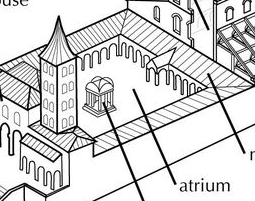
Atrium
Courtyard located in front of church entrance.
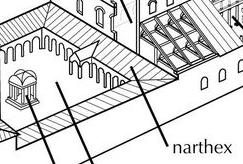
Narthex
Covered area before the church door.

Dome
Architectural feature formed by crossing axes.
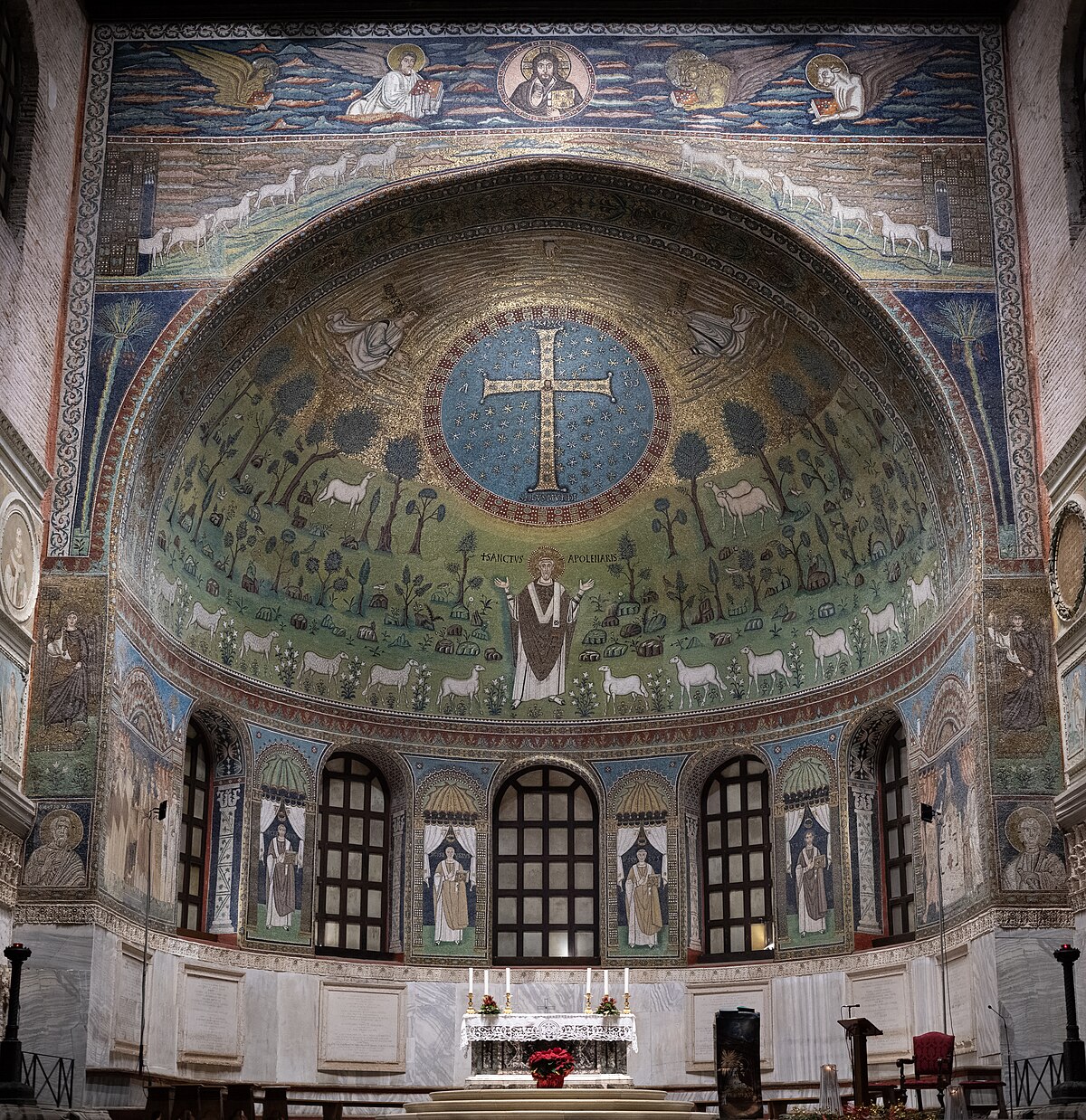
Apse
Curved wall located at the back of the church.
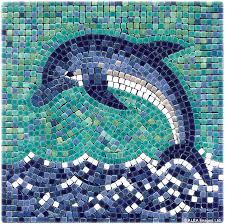
Mosaics
Art made from crushed stone pieces.
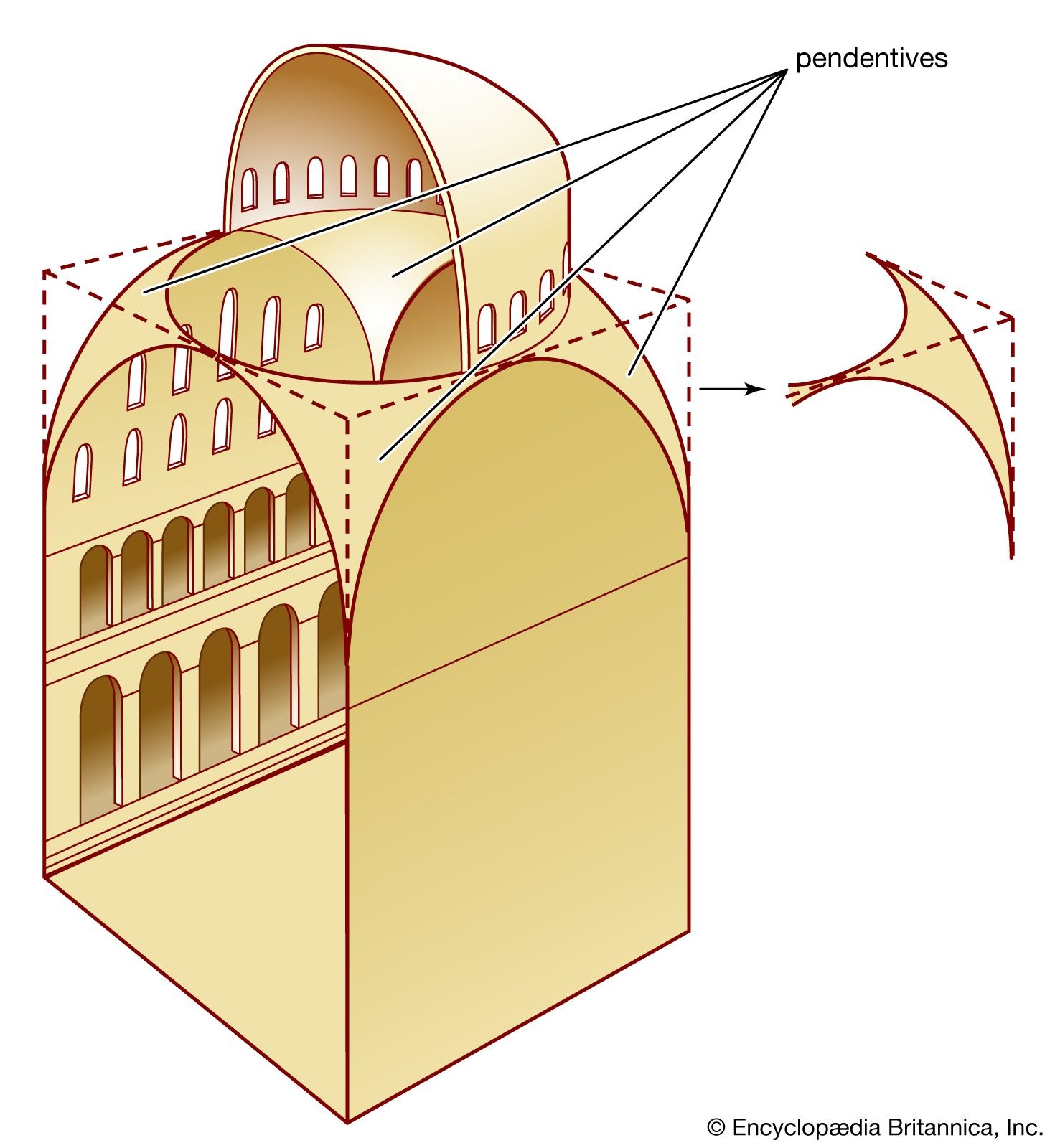
Pendentive
Triangular curved wall supporting a dome.
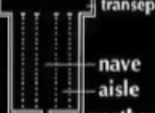
Nave
Central space in a church, leading to crossing.

Aisles
Side spaces flanking the nave in churches.
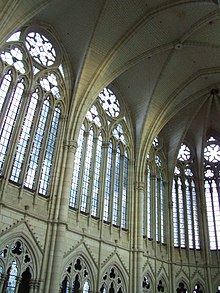
Clerestory
Windows bringing light from above the nave.
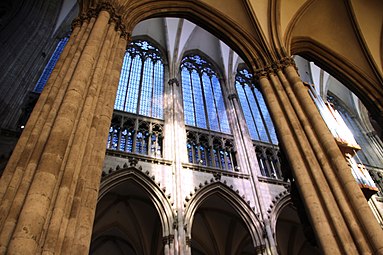
Triforium
Light openings under clerestory, divided into three.
Holy Roman Emperor
Supreme head of state, successor to Roman Empire.
Charlemagne
First Holy Roman Emperor, crowned in 800 AD.
Ravenna Sarcophagus
Contains bones of the Apostles.
Bell Towers
Indicate time; larger bells for hours, smaller for minutes.
Leaning Tower of Pisa
Famous bell tower, flawed foundation on sand.
Rose Windows
Not present in Byzantine architecture; later Gothic feature.
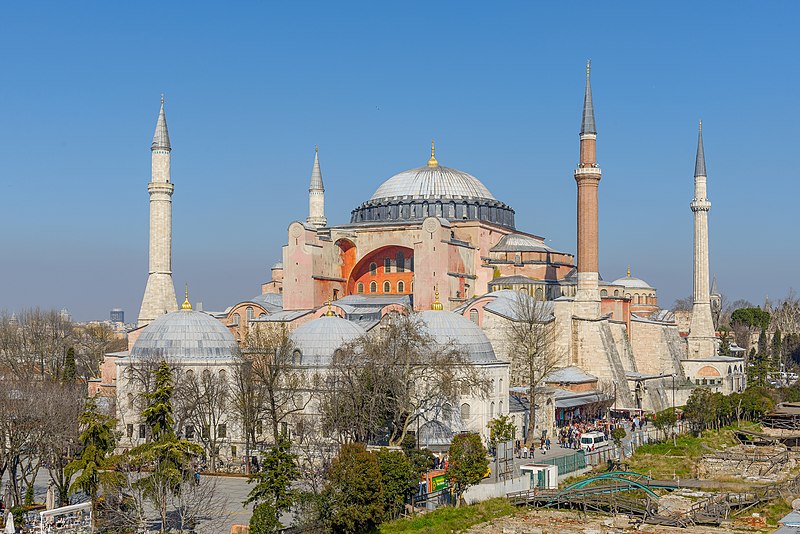
Hagia Sofia
one of many churches turned to mosques
Pope
had power over Roman Emperor
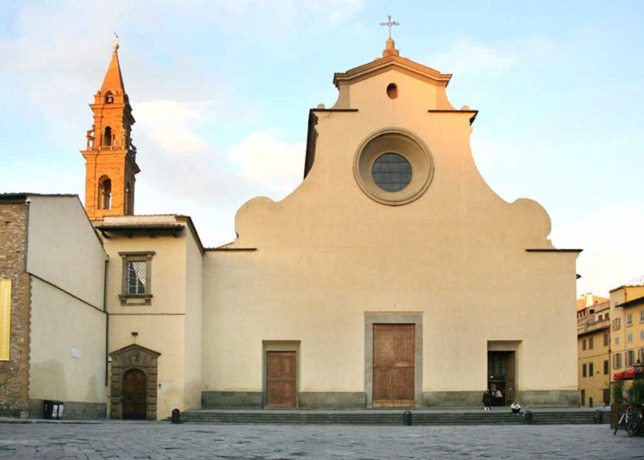
Church of Santo Spirito
1 nave 2 aisles
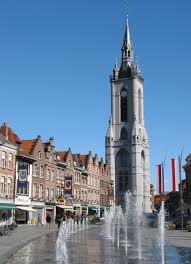
Belfry
separate structure enclosing bells from Church
Congregation
where people of the Church go
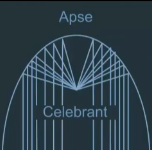
Celebrant
where priest goes